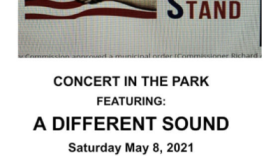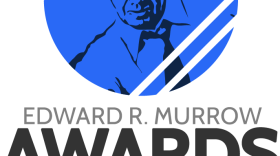Paducah is the 'poster child' micropolitan city poised for an urban-rural future. That's according to Rural Policy Research Institute President and CEO Chuck Fluharty. RPRI is a nonprofit group that assesses rural wealth, sustainable economic development and rural equity. Fluharty addressed international delegates from UNESCO Creative Cities of Crafts and Folk Art meeting in Paducah.
"Micropolitan cities like Paducah have a leading role in addressing the rural-urban dialectic in our culture," he said. He argued that arts and culture bring about a "quality of place," explaining that workforce and GDP will go to 'quality places' because people want to go to such places and said the jobs will come to them. He said millennials know this and that such migration exists in every continent.
Paducah Mayor Brandi Harless discussed the city's micropolitan status at a UNESCO meeting in France.

Fluharty said eight forms of wealth that together determine whether a rural place is sustainable: physical, financial, natural, human, intellectual, social, cultural and political. These factors must work together, he said. "Ask any natural extraction area what happened to the jobs and the income when extraction was done and you'll realize that GDP was not enough." Tying regional cities to rural countryside involves developing a quality of place through entrepreneurship and innovation (including social and civic), knowledge networks (from pre-k to post-college) and developing a narrative about "who we are."
"You are the poster child for my graph," he said of Paducah. Fluharty noted the community theatre reaching students across four counties, an ecotourism industry and schools developing workforce strategies, like the 'innovation hub' in development.
According to RPRI, there are 650 micropolitan cities in the U.S. The cities have an urban cluster of 10 to 50 thousand, are composed of more than one county have commuting patterns with one another.

Paducah Public Schools Superintendent Donald Shively said, “We believe public schools in the United States exist because there is a strong economic advantage to having great schools,” with a goal of graduates entering the local workforce after post-secondary education, “by design, not by chance.” This involves adapting course learning to meet the needs of area businesses and building relationships with regional higher ed institutions, he said.
“The health field is the number one market for jobs here in Paducah. Our students take our health classes at Baptist Health… so students interact in the hospital with nurses all the way through surgery to ensure that they have a real world idea of what it’s like to be in a hospital,” he said. He also described pathways through IT with Computer Services Inc. and a partnership with Paducah Barge for learning work on the Ohio River.
Shively outlined an innovation hub in development with a target completion of March 2020. He said a makerspace will feature tools and resources from various industries as well as an arts component. “It’s the creativity from art that allows engineering and IT to work together, or CAD and engineering. It’s the design principles that help connect these pieces together that you find in art,” he said, adding “art is the heart of how we get our students doing this.”

University of Kentucky College of Engineering professor Jeffrey Seay, located at the Paducah Extended Campus, described a student research team working to convert waste plastic into a diesel fuel substitute. Seay said plastic waste is a growing public health concern in some areas of the world, as they collect water and harbor mosquitoes, pollute waterways and oceans and create unsightly environments. He said the project converting plastic bags into fuel was designed to be relatively low-cost so people in affected villages could buy a processor and do it themselves. The fuel has been used in irrigation pumps and farm vehicles. He said student global service learning experiences like this expose students to an international experience, lucrative to employers.
Seay said sustainability is multicultural and interdisciplinary and has to have collaboration. He said events like the UNESCO Creative Cities meeting in Paducah gets people of different backgrounds and cultures talking together. “The thing that I’ve learned in traveling the world is that the world is a really small place and at the root we all want the same things. Getting us together is a great way to do that,” he said.





